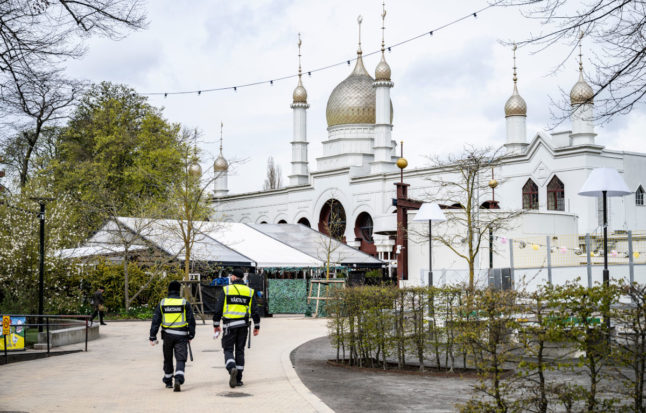Sweden gets a new government
Judging by the optimistic statements made by Moderate leader Ulf Kristersson, it looks like an agreement could be reached over Sweden’s next government sooner rather than later, with Kristersson installed as Prime Minister well before Halloween at the end of this month.
The Sweden Democrats are getting eight of the sixteen chairmanships and deputy chairmanships of parliamentary committees the right-bloc is entitled to, which suggests that far-right party will be a powerful support party rather than part of the ruling coalition. Whether the Liberal Party will be included in the government, with party leader Johan Pehrson as education minister, remains to be seen.
The new government will have to get straight to work on the budget for 2023. Outside of an election year, a Swedish government would submit its budget to the parliament by the end of September. It will also have to quickly get to work on convincing Turkey and its parliament to ratify Swedish Nato membership.
In the election campaign, the Moderate Party also promised to have a system of “high-cost protection” for electricity consumers in place by November 1st. If it is to have a chance of meeting this pledge, it will have to move rapidly.
Swedish delegation goes to Turkey for Nato meeting
On October 5th a delegation from Sweden’s Justice Department is travelling to Turkey for a meeting Turkey’s Anadolu news agency is calling a meeting on “the extradition of criminal terrorists”.
Sweden’s outgoing foreign minister Ann Linde said on September 27th that the talks with Turkey were “moving along nicely”.
“My judgement is that Turkey will say ‘yes’ to Swedish Nato membership, however I don’t know when that is going to be.”
Changes to Sweden’s first-in, last-out employment rules come into force
The reform to Sweden’s Employment Protection Law, lagen om anställningsskydd or LAS, comes into force on October 1st. The reform was one of the key policies the Centre Party drove through as part of the price for supporting the outgoing Social Democrat-led government.
Under the reform, employers who need to slim down their workforce during a business downturn gain the right to lay off three employees outside of the old first-in, last-out employment rules. These require employers to lay off those employed more recently before those who have worked for the employer for a long time.
In exchange for the looser rules, a new system will also come into force giving employees the right to education to improve their skills so they can find a new job, perhaps in a different industry. The new system is expected to cost the government between six and nine billion kronor a year.
Employees will be able to apply for support for studies to learn new skills from October 1st for courses starting from January 2023.
Sweden to start using the new BA.4 and BA.5 Comirnaty vaccine
Sweden’s Public Health Agency expects to take delivery of the new Pfizer/BioNTech vaccine adapted to target the new BA.4 and BA.5 subvariants of the Covid-19 virus. The vaccine will be distributed to Sweden’s regional health authorities to be given out as part of the höstdosen, or autumn dose, which is offered for all citizens over the age of 18 (but only actively recommended to those in a risk group or over the age of 65).
State visit by Dutch King and Queen
The Netherlands’ King William-Alexander and Queen Maxima are visiting Sweden on a state visit from October 11th to October 13th. The state visit is, according to a press release from Sweden’s Royal Court intended to “strengthen the long-running and excellent connections between Sweden and The Netherlands which go back to the 1600s”.
Reforms to which agency is responsible for Sweden in a crisis
From October 1st, Sweden is reforming its crisis preparedness system, with 60 agencies now classified as “crisis preparedness agencies”.
All of these agencies are required to work together with the Swedish Civil Contingencies Agency (MSB) and the Swedish Armed Forces to prepare for crisis situations or war, and to coordinate if a crisis or war actually happens.
Sweden’s 21 regional governments will also be grouped into six new “civil areas” or civilområde, with the governments of Norrbotten, Örebro, Stockholm, Östergötland, Västra Götaland, and Skåne each taking charge of their surrounding area in the event of a war.
Prisoners on early release can be returned to jail more rapidly if they do not behave
From October 1st, the Swedish Prison and Probation Service will gain greater powers to put prisoners on early release back behind bars without having to first have the decision approved by a judge at the supervisory board or Övervakningsnämnden. Currently, a decision by a judge is required before the service can dispatch police to apprehend a prisoner.
The prison service has complained that the delay can cause problems when prisoners, for example, visit or stalk the victim of their crime, particularly in domestic violence cases.



 Please whitelist us to continue reading.
Please whitelist us to continue reading.
Member comments